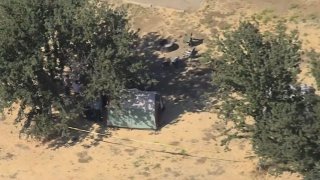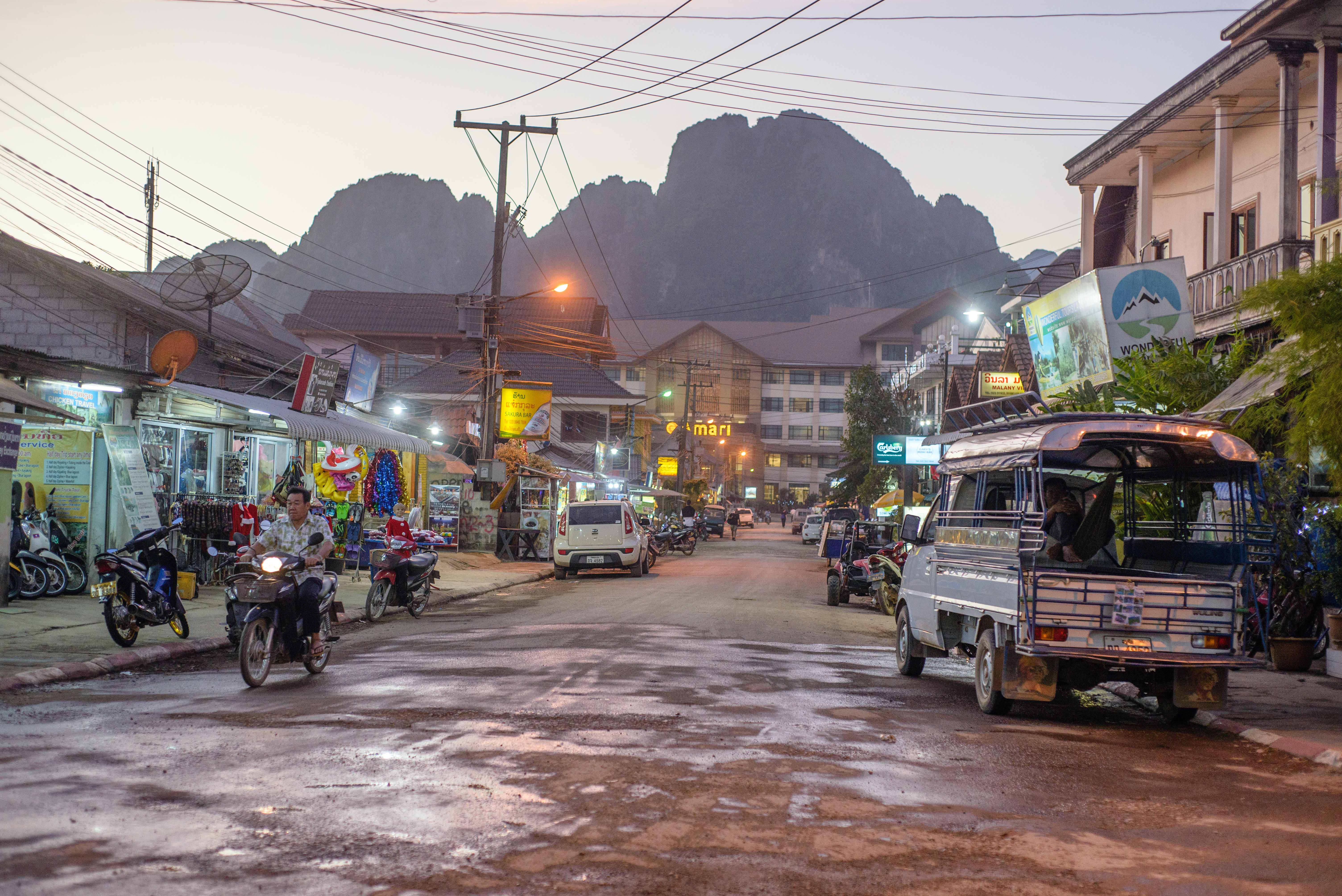
A man who fatally shot a research scientist as he slept inside a tent with his two young daughters in Malibu Creek State Park was convicted Friday of second-degree murder and other counts.
Anthony Rauda, 46, who some dubbed the “Malibu Sniper” when authorities accused him of involvement in multiple shootings in or near the park, was also convicted of three counts of attempted murder and five counts of second-degree commercial burglary.
The jury acquitted him of seven other attempted-murder charges.
Prosecutors had been seeking a first-degree murder conviction for the June 22, 2018, killing of Tristan Beaudette as he camped with his daughters, but jurors convicted Rauda instead of the lesser charge of second-degree murder.
Get top local stories in San Diego delivered to you every morning. Sign up for NBC San Diego's News Headlines newsletter.
Beaudette's wife wept in court as the verdicts were read. Rauda, who had previously waived his right to be present, was not in the downtown Los Angeles courtroom.
Superior Court Judge Eleanor Hunter set sentencing for June 7.
Hunter thanked the jurors for their service, noting their diligence in deliberating a complex case that included 16 overall charges. The jury began deliberating Tuesday morning.
U.S. & World
“This was a hard one,” she told jurors before dismissing them.
Prosecutors tried to link Rauda to a series of shootings, all of which generally occurred in the early morning hours. The commercial burglary charges involved a series of break-ins, including two at the Calabasas Community Center and two at the Las Virgenes Water District facility between July and October 2018, which primarily involved food that was taken from the facilities.
In the prosecution's final argument Tuesday just before jurors were sent back for deliberations, Deputy District Attorney Antonella Nistorescu told jurors the evidence against Rauda was “overwhelming.”
In his closing argument Monday, Rauda's attorney told the panel there is reasonable doubt and urged the jury to acquit his client.
The prosecutor told jurors Monday that Rauda had a “pattern of stalking and preying on campers'' at Malibu Creek State Park, beginning with a man being shot while sleeping in a hammock in November 2016 and that the victims were shot at between 3 and 5 a.m. – a time when the prosecutor said people are usually in their deepest, most peaceful sleep – as they camped at the state park.
Unsuspecting motorists were also shot at while driving nearby in white vehicles at night, with ballistics testing subsequently linking a rifle that was found in a backpack Rauda was carrying at the time of his arrest to the bullet that killed Beaudette and a shooting that damaged a white Tesla being driven nearby a few days earlier, according to the prosecutor.
Nistorescu said the defendant finally “managed to do what he had persistently” been trying to do when he killed Beaudette as he was sleeping next to his daughters, who were named as victims among the 10 attempted murder charges in the case. Beaudette's youngest daughter's leggings were covered in her father's blood when she knelt next to him after the shooting, the prosecutor said.
The prosecutor alleged that Rauda wore a mask and dark clothing and toted a rifle when he committed the burglaries, calling him “thorough,” “deliberate” and “careful.”
After the last break-in, Rauda was tracked down through bootprints and a scent dog to a makeshift encampment on Oct.10, 2018, Nistorescu said.
Rauda's attorney, Nicholas Okorocha, countered that there was “reasonable doubt” involving the charges against his client.
He told jurors they should watch for an absence of evidence that indicates gaps in the case.
“You have these unanswered questions,'' the defense lawyer said in his closing argument.
He noted that DNA testing done on cigarette butts found near where authorities believe the gunman shot at Beaudette's tent showed that the DNA came from an as-yet unidentified male and that it does not match his client's DNA.
Okorocha said the investigation has gone on for 4 1/2 years and is “still ongoing” as authorities try to figure out whose DNA was on the cigarette butts.
“There's clearly reasonable doubt,'' he said, telling jurors that he is asking them to "follow the law'' and “find Anthony Rauda not guilty.”
In her rebuttal argument, the prosecutor countered that the discussion about the cigarette butts was a “red herring,” saying they were found in a public campground and had no logical connection to Beaudette's shooting.
During the trial, Beaudette's brother-in-law, who was camping in a tent nearby, testified that he heard loud popping sounds and one of the victim's children crying, and found the man dead as his two daughters kneeled next to him in a pool of blood.
During emotional testimony, Scott McCurdy told the downtown Los Angeles jury that he was sleeping in a nearby tent when he was awakened by “several loud pops” that he initially thought may have been fireworks or something from a nearby fire pit and saw “like a flash of light” early the morning of June 22, 2018.
He said he heard one of Beaudette's daughters start to cry and waited for his brother-in-law to calm the girl down, then decided to get out of his own tent to see what was going on when he heard the girl's older sister talking with her.
“I heard the girls crying,” he said, telling jurors that Beaudette's youngest daughter said, “Wet, wet” and that he didn't think anything about it at the time.
McCurdy said he tried to verbally comfort the girls while trying to rouse his brother-in-law from sleep and turned on his brother-in-law's phone after noticing that his own hand felt slippery.
“My hand was covered in blood,” he said, noting that he turned back to his brother-in-law and saw the girls kneeling in a pool of blood and his brother-in-law's face in a pool of blood.
He said he reached down to try to feel his brother-in-law's neck for a pulse and realized he should get the girls out of the tent and call out to neighboring campers for help.
The victim's brother-in-law said he held on to the girls until a few neighbors came over and then went back into the tent to check on Beaudette.
“I noticed there was nothing in his eyes,” he said of the 35-year-old Allergan research scientist from Irvine. “I realized he was gone and I left.”
He said he started to put together what had happened to Beaudette and recalled that he had noticed that there was a small hole in the fairly new tent at the campsite, where toys were strewn about and a children's bike was on top of one of the vehicles.
The prosecution's first witness, Stacey Sebourn, who was camping nearby, said she was awakened early that day by the sound of gunshots that sounded like they came from a shotgun or rifle. She said she called 911 after hearing a man calling for help and a baby crying.
“It was a very mournful cry for daddy over and over again – ‘daddy, daddy, daddy,’” she said.
She said she whispered during her 911 call to report the shooting because she didn't want to bring attention to her own tent.
“I was petrified,'' she said, noting that she didn't initially come out of her tent after the shooting.
Rauda was arrested on Oct. 10, 2018.
He was sentenced in December 2018 to six months in jail for gun and ammunition violations, a sentence set to run consecutively with an earlier 160-day sentence for a probation violation.
He was charged in January 2019 with the alleged crime spree and subsequently indicted in October 2019.
Rauda was sentenced last June to three years and eight months in jail after being convicted of attacking two Los Angeles County sheriff's deputies since he's been in custody. Both of those attacks were caught on surveillance video, and Rauda was subsequently brought into court for further hearings in a chair in which he was confined.



